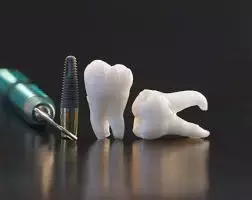- Home
- Medical news & Guidelines
- Anesthesiology
- Cardiology and CTVS
- Critical Care
- Dentistry
- Dermatology
- Diabetes and Endocrinology
- ENT
- Gastroenterology
- Medicine
- Nephrology
- Neurology
- Obstretics-Gynaecology
- Oncology
- Ophthalmology
- Orthopaedics
- Pediatrics-Neonatology
- Psychiatry
- Pulmonology
- Radiology
- Surgery
- Urology
- Laboratory Medicine
- Diet
- Nursing
- Paramedical
- Physiotherapy
- Health news
- Fact Check
- Bone Health Fact Check
- Brain Health Fact Check
- Cancer Related Fact Check
- Child Care Fact Check
- Dental and oral health fact check
- Diabetes and metabolic health fact check
- Diet and Nutrition Fact Check
- Eye and ENT Care Fact Check
- Fitness fact check
- Gut health fact check
- Heart health fact check
- Kidney health fact check
- Medical education fact check
- Men's health fact check
- Respiratory fact check
- Skin and hair care fact check
- Vaccine and Immunization fact check
- Women's health fact check
- AYUSH
- State News
- Andaman and Nicobar Islands
- Andhra Pradesh
- Arunachal Pradesh
- Assam
- Bihar
- Chandigarh
- Chattisgarh
- Dadra and Nagar Haveli
- Daman and Diu
- Delhi
- Goa
- Gujarat
- Haryana
- Himachal Pradesh
- Jammu & Kashmir
- Jharkhand
- Karnataka
- Kerala
- Ladakh
- Lakshadweep
- Madhya Pradesh
- Maharashtra
- Manipur
- Meghalaya
- Mizoram
- Nagaland
- Odisha
- Puducherry
- Punjab
- Rajasthan
- Sikkim
- Tamil Nadu
- Telangana
- Tripura
- Uttar Pradesh
- Uttrakhand
- West Bengal
- Medical Education
- Industry
Dental nerves play pivotal role in mediating pulpal inflammatory responses: Study

Dental nerves play a pivotal role in mediating pulpal inflammatory responses, according to a recent study published in the International Endodontic Journal.
Thus, understanding how dental nerves participate in pulpitis could have important clinical ramifications for endodontic treatment. As one of the most densely innervated tissues, the dental pulp contains abundant nerve fibres, including sensory, sympathetic and parasympathetic nerve fibres.
The dentalDental nerves play a pivotal role in mediating pulpal inflammatory responses pulp is a peripheral end-organ without collateral nerves, and its dense innervation has been the subject of extensive research throughout the last century. The major function of dental nerves is thought to be the transmission of afferent signals to the central nervous system (CNS), which ultimately triggers various responses. More specifically, the pathway for signal transmission in the dental pulp starts with the detection of stimuli by primary afferent fibres. The first-order neurons in trigeminal ganglion project central terminals to the neurons that are located within the brainstem; these signals are then sent to the thalamus, and the somatosensory cortex finally receives the thalamic inputs. Almost all stimuli applied to the dental pulp result in the sensation of pain, which as one of the most commonly reported symptoms, can vary in intensity.
Studies in animal models and human patients with pulpitis have revealed distinct alterations in protein expression and histological appearance in all types of dental nerve fibres. Various molecules secreted by neurons, such as classical neurotransmitters, neuropeptides and amino acids, not only contribute to the induction, sensitization and maintenance of tooth pain, but also regulate non-neuronal cells, including fibroblasts, odontoblasts, immune cells and vascular endothelial cells. Dental nerves are particularly important for the microcirculatory and immune responses in pulpitis via their release of a variety of functional substances. Further, nerve fibres are found to be involved in dental soft and hard tissue repair.
Thus, the researchers concluded that the developments described in this review demonstrate a complex and pivotal role of dental nerves in mediating pulpal inflammatory responses, which goes far beyond the traditional concept related to pain signal transmission
Reference:
Zhan C, Huang M, Yang X, Hou J. Dental nerves: a neglected mediator of pulpitis. International Endodontic Journal, 54, 85–99, 2021.
https://onlinelibrary.wiley.com/doi/pdfdirect/10.1111/iej.13400
Dr. Shravani Dali has completed her BDS from Pravara institute of medical sciences, loni. Following which she extensively worked in the healthcare sector for 2+ years. She has been actively involved in writing blogs in field of health and wellness. Currently she is pursuing her Masters of public health-health administration from Tata institute of social sciences. She can be contacted at editorial@medicaldialogues.in.
Dr Kamal Kant Kohli-MBBS, DTCD- a chest specialist with more than 30 years of practice and a flair for writing clinical articles, Dr Kamal Kant Kohli joined Medical Dialogues as a Chief Editor of Medical News. Besides writing articles, as an editor, he proofreads and verifies all the medical content published on Medical Dialogues including those coming from journals, studies,medical conferences,guidelines etc. Email: drkohli@medicaldialogues.in. Contact no. 011-43720751


